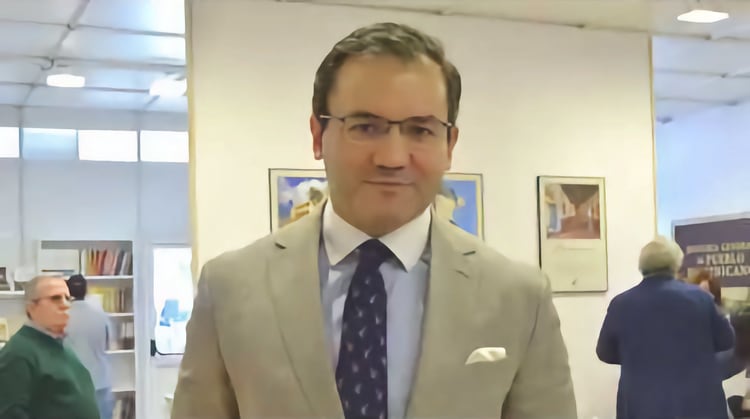The Diplomat
The Minister of Defense, Margarita Robles, held a videoconference yesterday with the heads of the Spanish contingents deployed in Slovakia, Lebanon and the ‘Atalanta’ operation in the Indian Ocean, in which she was informed of the latest news about these missions.
As reported by the Ministry of Defense in a press release, the communication began with the intervention of Rear Admiral Manuel Álvargonzález, who last June assumed command of the EUNAVFOR mission against piracy in the Horn of Africa. During the interview, the minister highlighted the “exceptional work” carried out by the mission, as well as the good relations between the Spanish contingent and the Somali authorities, in a “complicated and difficult” situation.
Although the situation has remained relatively stable since 2019, cases of assaults on ships by Somali pirates have increased since the end of last year, in parallel with a worsening of the situation in the Red Sea due to attacks by the Houthi militias of the Yemen.
Currently, as reported by the rear admiral from the frigate ‘Numancia’, a reduction in piracy activity is expected due to the complicated weather in the area, but it is expected to rebound starting in September as the connections between piracy and other activities grow. , such as illegal fishing and arms and drug trafficking.
The Defense Minister also received the latest news from the contingent deployed in Slovakia, which is part of the deterrence and defense missions carried out within the framework of NATO. On July 1, Spain assumed command of a ‘Battle Group’ of this operation to reinforce the Eastern Flank of Europe, commanded by Colonel Andrés González Alvarado.
Robles highlighted that this mission highlights Spain’s “clear and firm” commitment to the Atlantic Alliance. “Those responsible for Spain are the best manifestation of that commitment to NATO. I am sure that your role is going to be exceptional,” said the minister about the mission that, with 750 soldiers deployed in the Lest area, is currently the largest in Spain abroad.
Likewise, Minister Robles communicated with Brigadier General Guillermo García del Barrio, who from Lebanon referred to the instability of the area in the midst of an upsurge in tensions between Israel and the Hezbollah militia. The general highlighted the exhaustive preparation that the contingent has carried out prior to its arrival in Lebanon to be part of this UNIFIL mission.
“Your words and your high morale give us great peace of mind in such a complicated and difficult context,” said the minister, who received news about the different levels of protection with which the Spanish military works daily. “I want to convey my pride in the work you do in such a turbulent situation, we will never thank you enough for what you do,” she added.
The ‘Aragón’ I Brigade, under the command of General García del Barrio, took charge of the Lebanon Brigade (BRILIB XLI) in the Eastern sector in May, within the framework of the surveillance mission of the ‘blue line’ of the UN, in the border area between Israel and Lebanon. Spain has 670 soldiers deployed in Lebanon, who since the relief that took place at the end of May mostly belong to the ‘Aragón’ I Brigade. The Eastern Multinational Brigade led by Spain is made up of some 3,500 troops of nine different nationalities.







